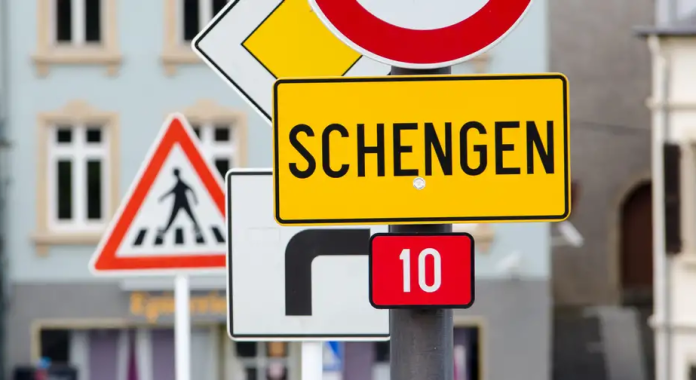German opposition parties and parts of the government coalition are calling for more border checks to combat illegal migration, according to Euractiv.
The calls question the consensus on Schengen, which has long been taken for granted in Germany bordering most EU member states.
Although the number of illegal border crossings in Germany has decreased compared to last year, it remains high after a low level caused by the pandemic. This prompted the government to reintroduce checks at the borders with Poland, the Czech Republic, and Switzerland from September last year, in addition to checks at the German-Austrian border. Critics of migration, however, believe this is not enough.
The opposition and part of the government coalition are now calling for permanent checks at all national borders. Some fear that the migration debate will lead to a shift away from a border-free Schengen system. Christian Petry, MP on European affairs, stated:
Fear for the achievements of Schengen is justified. If this political development [calls for blanket checks] continues and becomes capable of winning a majority [in parliament], it would be a major setback for a federal, social Europe.
Since the introduction of temporary checks at all national borders during the UEFA European Football Championship (EURO) and the Olympics on the border with France, the largest opposition group, the centre-right CDU/CSU, has been pushing for the registration of total checks along the entire German border.
CDU/CSU leader Friedrich Merz recently called it one of the measures “that do not cost money, but could very quickly change the mood in the country for the better.”
Interior Minister Nancy Faeser (SPD/S&D) refused to make the checks permanent, but the SPD’s coalition partner, the Liberal FDP, came out in favour of the proposal.
Schengen at risk
This development marks a new level of escalation in the normalisation of border controls for Germany as one of the most interconnected countries in the EU. It was Chancellor Helmut Kohl who authorised the introduction of Schengen in 1995.
His future CDU successor, Angela Merkel, continued to portray herself as a champion of pan-European solutions in the face of the 2015-2016 refugee crisis. However, her government reintroduced checks at the Austrian border. By 2023, CDU representatives were leading calls for controls at the borders with the Czech Republic and Poland amid a surge in illegal migration.
Faeser was sceptical at first, noting that “stationary border controls are a major disruption to the everyday lives of many people”. Eventually, she succumbed to the pressure.
Meanwhile, supporters of expanded checks point to the success of the inspections during EURO. Between June 7 and July 19, police recorded 9,172 unauthorised entries, far more than in any month this year. Of these, 6,401 were recovered. Also, 275 suspected smugglers were arrested, the CDU’s deputy lead MP on European affairs, Detlef Seif, stated.
[The numbers] (…) show to which extent freedom of movement is abused by criminals and endangers citizens. The ‘spirit of Schengen’ is often misinterpreted as unconditional freedom of movement.
Seif recalled that Schengen requires effective external checks at EU borders, the lack of which necessitated internal national checks.
Petry of the SPD fears that the inconvenience and psychological effect of comprehensive and total border checks will damage cross-border co-operation in the long term. Germany’s ruling party therefore insists that checks are not the most effective defence, while the interior ministry also argues that Schengen rules require controls to be temporary.
Migration rates must steadily decline for inspections to be stopped, Faeser declared. Meanwhile, the implementation of the new system is not due to be completed until 2026.
